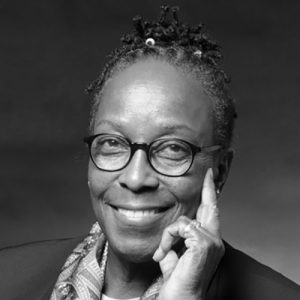
An increasing number of school districts and organizations on Long Island have signed up to participate in Adelphi University’s Diversity Certificate program.
Diversity awareness stems from engaging educational experiences.
As a contemporary institution of learning, Adelphi University encourages students, faculty and staff to seek educational experiences outside of the traditional classroom. A variety of diversity-focused training and mentoring programs provide opportunities for members of our community to broaden their horizons and improve our campus climate for all individuals.
A comprehensive training program promoting a climate of intercultural awareness and respect across all members of the Adelphi community.
The Adelphi University Diversity Certificate Program is designed to promote a positive, respectful workplace and learning space for all of our constituents. It is supported by the Office of Human Resources, Office of the Provost, Office of the President and the University Diversity Committee. The Diversity Certificate program is intended to address diversity and inclusion holistically including, but is not limited to, race, creed, color, national origin, ethnicity, sex, sexual orientation, gender identity, disability, age, religion, and marital and veteran status.
The Adelphi University Diversity Certificate Program is composed of five (5) classroom workshops (four required and one elective) and a capstone experience, and is open to Adelphi faculty and staff. The workshops meet for 2-3 hours and are led by our own Adelphi faculty and administrative expert facilitators. All participants seeking to earn a certificate must complete all five (5) workshops and the capstone within three (3) academic years to earn the certificate.
There is no tuition cost for Adelphi faculty or staff who participate in the workshops.
At the successful completion of the five (5) workshops and the Capstone Experience, the participant will be presented with a Diversity Certificate. Individuals are welcome to take individual courses based on their own interests, as long as any prerequisites for that course have been fulfilled. The maximum enrollment is 15 participants in each workshop. Supervisors are encouraged to permit employees to participate in this program during work hours if coverage and workload allow.
At the end of the program, the participant should be able to:
All participants must choose one or more from the following course options to complete the certificate.
Capstone Experience: Becoming a Diversity Change Agent
This Capstone Experience is taken at the completion of the program. Participants will work closely with a facilitator to explore service learning or experiential activities either that can be accomplished on campus or in local communities.
The Diversity Certificate program engages participants in conversations that enable a deeper understanding and appreciation for the importance, contributions and value of diversity, equity and inclusion to an organization’s creativity and its productivity, vitality and well-being,
 Marsha J. Tyson Darling, PhD
Marsha J. Tyson Darling, PhD

An increasing number of school districts and organizations on Long Island have signed up to participate in Adelphi University’s Diversity Certificate program.
The mission of the Safe Zone training program at Adelphi University is to identify and support students, faculty, and staff who identify as a Safe Zone advocate on behalf of the LGBTQ community. Through education, advocacy and awareness, they will be empowered to speak out against homophobia and heterosexism. The program’s goal is to contribute to an open campus climate that is safe, accepting and just for all members of the University community.
The program supports the academic, social and professional development of students at any phase of their undergraduate career. The office skillfully pairs students with mentors who will guide and nurture them to help ensure their collegiate success.